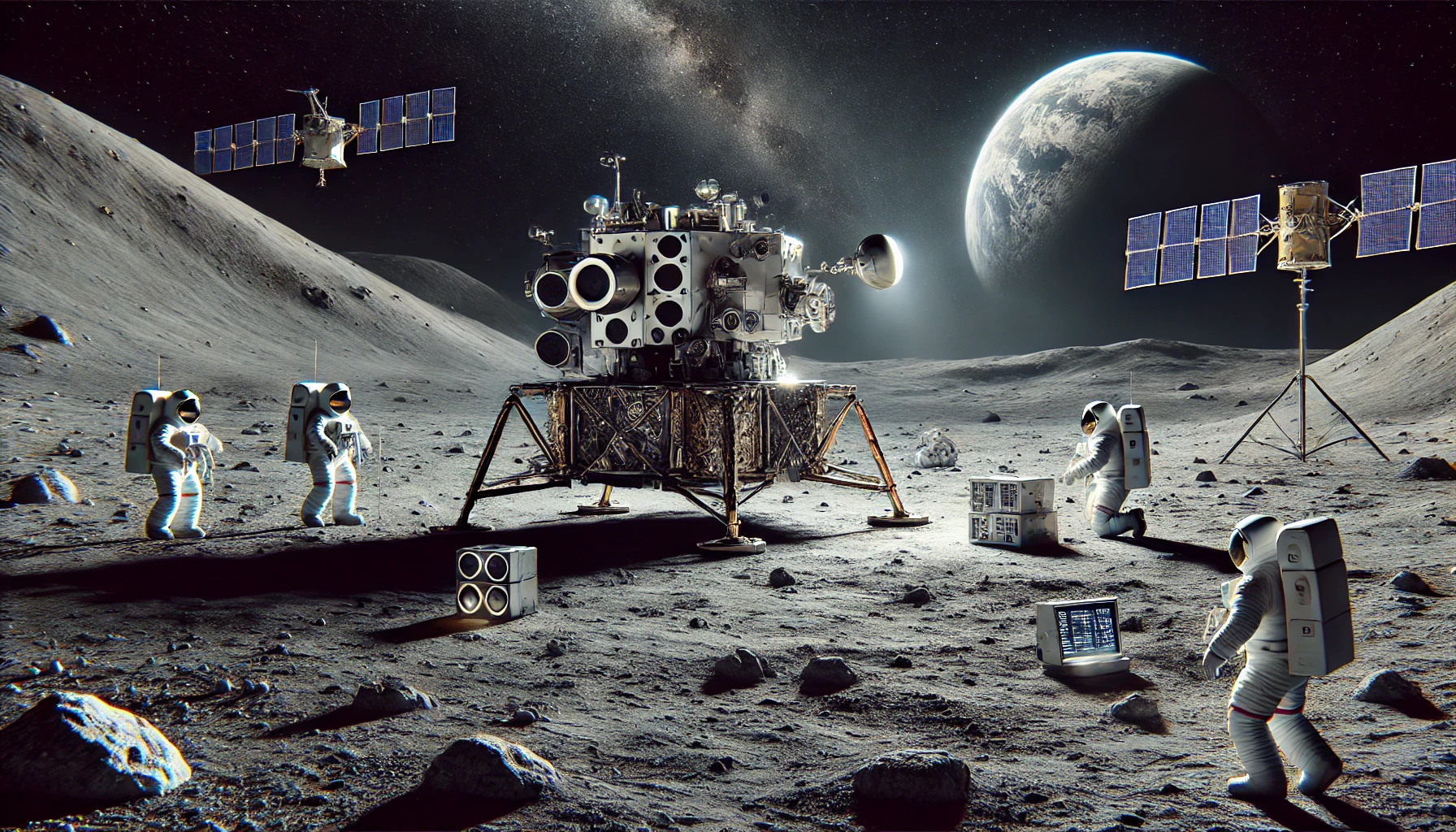Space exploration has always been a frontier of human ingenuity and technological advancement. In recent years, the integration of Artificial Intelligence (AI) with space exploration technologies has opened new possibilities, enhancing our ability to explore and understand the cosmos. However, the recent challenges faced by the Peregrine lunar lander due to a fuel leak highlight the complexities and risks inherent in this endeavor.
The Peregrine Lunar Lander: A Mission Overview
The Peregrine lunar lander, developed by Astrobotic Technology, was designed to deliver scientific instruments and payloads to the Moon. This mission represents a significant step forward in commercial lunar exploration, with AI playing a crucial role in its operations. The lander was equipped with advanced AI systems to autonomously navigate, land, and conduct scientific experiments on the lunar surface.
The Fuel Leak Incident
Despite the advanced technology onboard, the Peregrine lunar lander encountered a critical issue: a fuel leak. This problem jeopardized the mission, underscoring the delicate balance required in integrating AI with traditional space exploration technologies. The fuel leak not only threatened the lander’s ability to reach its destination but also raised concerns about the reliability and robustness of AI systems in managing unforeseen challenges.
The Role of AI in Space Exploration
AI is revolutionizing space exploration in several key areas:
-
Autonomous Navigation: AI enables spacecraft to navigate autonomously, making real-time decisions based on sensor data. This capability is crucial for missions where direct human control is not feasible due to time delays or other constraints.
-
Data Analysis: AI algorithms can process vast amounts of data collected by spacecraft, identifying patterns and anomalies that might be missed by human analysts. This enhances the scientific return of missions by uncovering new insights.
-
System Health Monitoring: AI systems can continuously monitor the health of spacecraft, detecting and diagnosing issues before they become critical. This predictive maintenance helps in extending the lifespan and reliability of space missions.
Challenges of Integrating AI with Space Technologies
The incident with the Peregrine lunar lander highlights several challenges associated with integrating AI into space exploration:
-
Complexity of Systems: Spacecraft are incredibly complex machines with numerous interdependent systems. Integrating AI adds another layer of complexity, requiring seamless coordination between AI and traditional technologies.
-
Reliability and Redundancy: AI systems must be highly reliable, as failures can have catastrophic consequences. Building redundancy into AI systems is essential, but it also adds to the weight and cost of spacecraft.
-
Unpredictable Environments: Space missions operate in harsh and unpredictable environments. AI systems must be robust enough to handle unexpected conditions, from extreme temperatures to radiation exposure.
Lessons Learned and the Path Forward
The challenges faced by the Peregrine lunar lander provide valuable lessons for future missions:
-
Enhanced Testing and Validation: Rigorous testing and validation of AI systems are crucial. Simulating various failure scenarios and environmental conditions can help in identifying and mitigating potential issues before launch.
-
Improved Integration: Better integration between AI and traditional spacecraft systems can enhance overall reliability. This includes developing protocols for AI to interact seamlessly with manual control systems.
-
Continued Innovation: Despite the setbacks, the potential of AI in space exploration remains immense. Continued innovation and investment in AI technologies will drive progress, enabling more ambitious missions in the future.
Conclusion
The Peregrine lunar lander’s fuel leak incident underscores the inherent complexities and risks of integrating AI with space exploration technologies. While AI offers transformative potential, its application in space missions must be approached with careful planning and robust safeguards. As we learn from these challenges, the future of AI-driven space exploration looks promising, paving the way for new discoveries and advancements in our quest to explore the final frontier.







